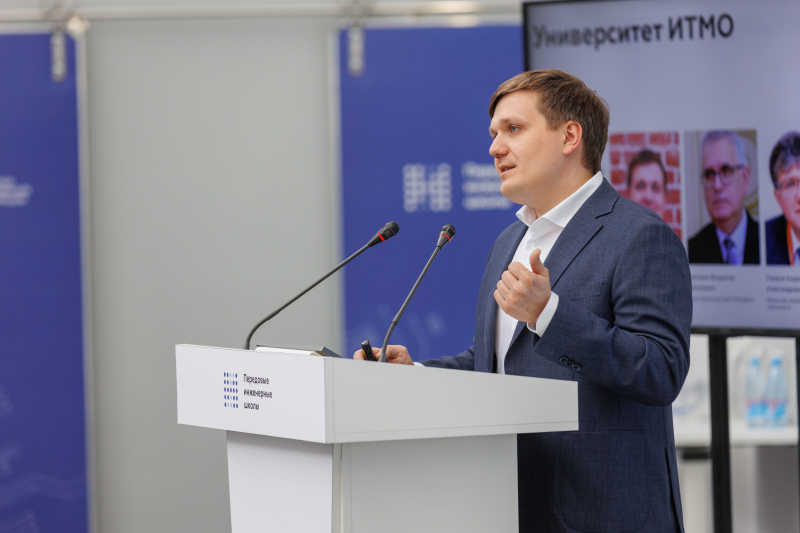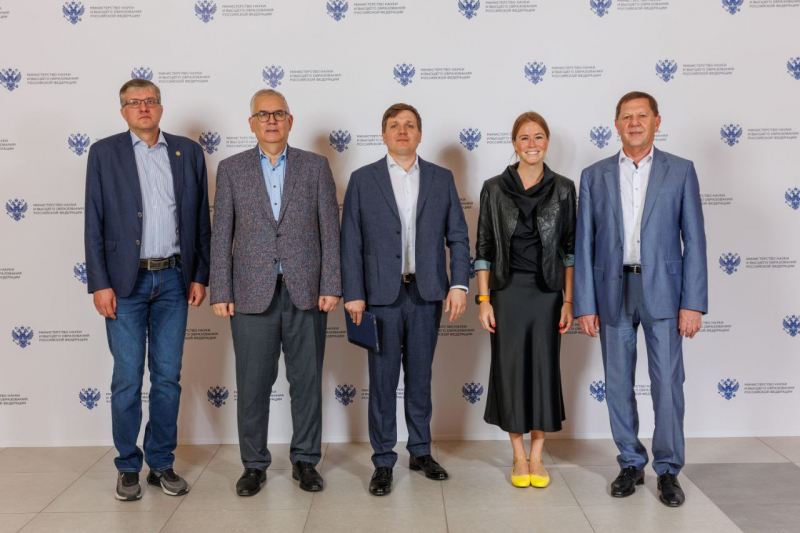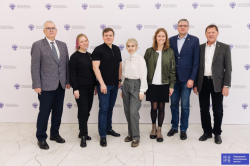On June 19, Russian universities presented their projects to the Ministry of Science and Higher Education. Based on the results of the defense, the committee selected 89 universities that will advance to the final round. The ITMO team was among the first to present its plan for the engineering school’s creation and development. The university was represented by Vladimir Knyaginin, the Vice Governor of St. Petersburg; Vladimir Vasilyev, the Rector of ITMO University; Daria Kozlova, ITMO’s First Vice Rector and the head of its Development Strategy; Alexander Vinogradov, the head of ITMO’s Advanced Engineering School and an associate professor at ITMO’s ChemBio Cluster; and Andrey Glazkov, the head of the HR Department at Tatneft.
“ITMO’s engineering school will train specialists who possess the core competencies needed to accelerate digital transformation in emerging sectors of business and production. Unlike other schools, we will not only train students in engineering and management but also equip them with the soft skills needed to immediately implement research in practice,” says Alexander Vinogradov.
According to him, the school’s graduates will become engineering leaders who will be well-versed in information technologies, as well as will be able to easily make management decisions, model business processes, and turn research into MVP.

Alexander Vinogradov. Credit: Sociocenter
“We gained valuable experience communicating with other experts and the committee’s members,” shares Daria Kozlova. “During the defense, each team only has 10 minutes to prove that they deserve the right to bring such an ambitious project to life. Here, the school’s head plays a key role, so, in our case, Alexander Vinogradov took the lead. After all, he is the one who knows exactly what we’re aiming to achieve. Having this vision in mind, he responded in an accurate and sharp way.
The committee’s members are high-class specialists who asked us incisive, meaningful questions about our school. In the presentation, we placed a particular emphasis on the link between the school and the university’s Development Strategy. As we developed our application, we recognized the similarities between these two programs. We expect them to result in a highly productive synergy.”
During their defense, the university’s team presented educational programs for four categories of future engineering leaders:
Engineer intrapreneurs are qualified to make management decisions, build successful teams, and keep them on track. To do so, they need high-level fundamental and applied skills, as well as a background in economics and experience with launching and promoting new products. Students who will study at ITMO will have the chance to help build and launch commercially successful products and services during their studies.
Data engineers are specialists with an in-depth expertise in a specialized field who understand the specifics of relevant products and key markets, while at the same time having a good command of programming, information technologies, and digital transformation. During their training, these future specialists can master generative design, machine learning, processing of big data and artificial intelligence, as well as learn to apply their skills in real-world industry cases.
Broker engineers are field-savvy experts who can grasp the dynamic and focus of markets, products, and tech solutions. The engineering school will help such specialists to develop skills in business analytics and modeling, as well as gain knowledge in organizational and legal support. Broker engineers are highly sought-after to promote products, adapt to dynamic shifts in the market, and accelerate companies’ growth.
Expert engineers are high-level specialists capable of building MVPs from research. The university’s program will focus on developing not only the students’ engineering thinking but also their in-depth understanding of products and technologies, thus providing them with competencies they need to attract investors and enter various markets.
The university’s pilot projects will be implemented in cooperation with major oil-and-gas companies Tatneft and Gazprom Neft.
The establishment of advanced engineering schools is one of the 42 strategic initiatives meant to improve the quality of life in Russia. The government plans to allocate over 36 billion rubles towards the establishment of engineering schools throughout 2022-2024.
Editorial team







